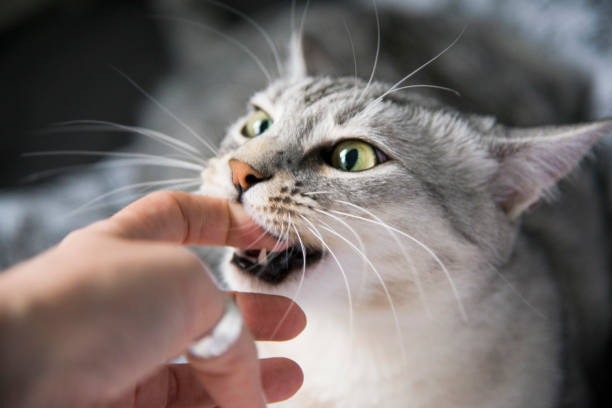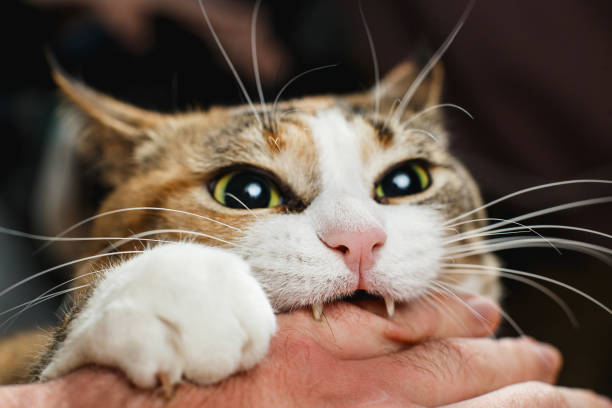Cats are adorable, fluffy companions—but when those tiny teeth come out, things can get confusing and painful. If your feline friend has recently started biting you (or seems to bite more often), you might be wondering: Why is my cat doing this, and what can I do about it?
In this article, we’ll explore the most common reasons behind cat biting, what it means, and how you can handle it in a safe and loving way.
 Understanding Why Cats Bite
Understanding Why Cats Bite
Cat biting can happen for many reasons, and identifying the cause is the first step in preventing it. Here are some of the most common explanations:
1. Playful Behavior
Kittens and young cats often bite during play. They see your hands as toys, especially if they weren’t taught proper boundaries when they were younger.
2. Overstimulation
Petting-induced aggression is real. Your cat might enjoy affection at first but reach a point where it becomes too much, prompting a quick bite as a signal to stop.
3. Fear or Stress
Changes in the home, loud noises, or unfamiliar people can make a cat feel threatened—leading to defensive biting.
4. Territorial Instincts
Cats are naturally territorial. If they think you’re invading their space or touching something they’ve claimed, they might respond with a warning nip.
5. Pain or Medical Issues
Sometimes, biting can be a way for your cat to communicate discomfort or pain. Dental problems, arthritis, or injuries can trigger aggressive reactions.
How to Stop a Cat from Biting
-
Avoid using hands as toys – Use interactive toys like wands or balls instead.
-
Watch for warning signs – Ears back, twitching tail, or skin rippling often means “I’ve had enough.”
-
Provide mental and physical stimulation – Play sessions, climbing trees, and scratching posts can reduce boredom-related biting.
-
Visit the vet – Rule out medical causes if the biting is sudden or unusual.
-
Positive reinforcement – Reward calm behavior with treats and praise, not punishment.
 Frequently Asked Questions
Frequently Asked Questions
Q1: Why does my cat bite me gently?
Gentle bites, often called “love bites,” are your cat’s way of showing affection. They don’t usually break the skin and are more playful than aggressive.
Q2: My cat bites when I stop petting them—why?
Some cats use biting to demand attention. If your cat does this, redirect them to a toy instead of your hand.
Q3: Can I train my cat not to bite?
Yes! With consistent boundaries, redirection, and positive reinforcement, most cats can learn to reduce or stop biting behaviors.
Q4: Is biting a sign of aggression?
Not always. While some bites are defensive or territorial, others are simply playful or affectionate.
Final Thoughts
Cat biting can be frustrating, but it’s rarely without reason. Understanding why your cat is biting is key to solving the problem. Whether it’s a sign of overstimulation, fear, playfulness, or discomfort, patience and proper handling can help you and your feline friend build a stronger bond.
Helpful Note: Never punish your cat for biting—it can lead to more fear and aggression. Instead, focus on understanding their triggers and offering safe outlets for their energy.
With the right approach, those little nibbles can turn back into purrs in no time.


 CBD Oil for Cats - Fast Acting
CBD Oil for Cats - Fast Acting
 CBD Cat Treats - Easy Dose
CBD Cat Treats - Easy Dose
 CBD Calming Chews for Cats - Highly Rated
CBD Calming Chews for Cats - Highly Rated
 CBG Oil for Dogs and Cats - Loved by Thousands
CBG Oil for Dogs and Cats - Loved by Thousands





Leave a comment
This site is protected by hCaptcha and the hCaptcha Privacy Policy and Terms of Service apply.